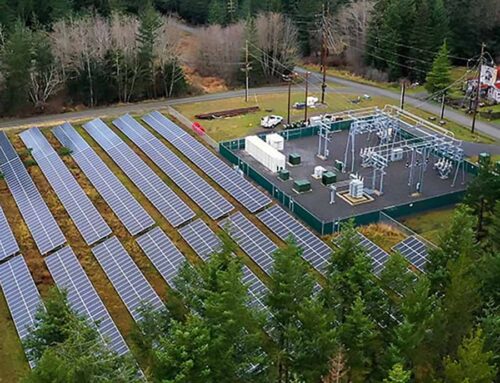Data Center REITs: A Guide to Investing in Digital Infrastructure
April 30, 2025
From an investor’s perspective, data centers are just real estate – a special type of real estate, but real estate, nonetheless. That’s why the companies that own and operate data centers are often called real estate investment trusts, or REITs.
If you want to invest in the data center industry, purchasing shares in an REIT is one way. But depending on your goals, other approaches to data center investing, like ETFs, might be better.
For guidance on whether and how to invest in data center REITs, read on as we explain what REITs mean, how they work, and their pros and cons from an investment perspective.
What Is a Data Center REIT?
A data center real estate investment trust, or REIT, is a company that owns and operates data centers. Typically, data center REITs rent space in their facilities to other businesses, which use it to host servers.
REITs usually don’t operate servers and other IT infrastructure themselves. However, there are exceptions, such as Equinix, an REIT whose main business is renting colocation space but which also sells some bare-metal-as-a-service products.
REITs are a type of investment vehicle created in 1960. Their goal is to allow investors to purchase shares in broad commercial real estate portfolios as an alternative to investing in individual projects or properties.
REITs can hold a wide variety of properties, but those that focus on data centers are known as data center REITs.
List of Data Center REITs
There are currently two major data center REITs: Equinix and Digital Realty. Both operate large, global portfolios of data center facilities.
There are also a handful of REITs that focus mainly, but not exclusively, on data centers. The primary example is Iron Mountain, which operates about 25 data centers globally and offers data management solutions. Some companies, like Rackspace, operate data centers but are not structured as REITs.
Lastly, other investment firms like BlackRock and JLL have significant data center investments and operations, but are structured as traditional corporations rather than REITs.
Pros and Cons of REITs for Data Center Investing
From an investment standpoint, data center REITs are attractive because they’re a simple way of investing in the data center industry. Instead of having to choose specific facilities and place their bets on one or a handful of data centers, investors can purchase shares in an REIT to acquire partial ownership in a large number of data centers. The large data center REITs, like Equinix and Digital Realty, operate hundreds of facilities worldwide.
That said, the diversification that data center REITs offer is limited, which is one of their potential disadvantages. Unlike data center Exchange Traded Funds (ETFs), which usually own shares in multiple companies, most major data center REITs consist of the holdings of just one company. REITs own multiple data centers, all managed by a single entity.

Leading data center REITs like Equinix manage sophisticated facilities that power global digital infrastructure. Image: Equinix.
Data Center REITs vs. Data Center ETFs
Since ETFs are the main alternative investment vehicle for the data center industry, let’s compare REITs to ETFs in more detail.
The first thing to note about data center ETFs in comparison to REITs is that they typically overlap because data center REITs are often among the central holdings of data center ETFs. For example, the Digital Realty and Equinix ETFs are at the top of the iShares U.S. Digital Infrastructure and Real Estate ETF (IDGT) holdings, accounting for nearly 20% of the ETF’s total investment. This means that if you buy that ETF, you are effectively buying REITs, too.
That said, data center ETFs typically have more diversified holdings. For instance, significant portions of IDGT’s holdings include firms that operate cellular network infrastructure, cloud computing companies, and IT hardware companies.
Note that most data center ETFs also hold multiple data center REITs. In this sense, they are diversified because their performance is not beholden to the operations of just one business.
So, choose a data center REIT if you want to invest solely in one data center company. If you want a more diversified investment that centers on but is not exclusively linked to the data center industry, an ETF may be a better choice.
Read more of the latest news about data center investments
How to Invest in a Data Center REIT
To buy an REIT focused on the data center industry, you would typically purchase shares in the REIT on a stock exchange. You’ll need a brokerage to do this.
In some cases, retirement accounts may also offer exposure to REITs, although they rarely provide options for investing in data center REITs specifically. They may, however, offer mutual funds or ETFs that include data center REIT holdings.
Note: This article is for informational purposes only and should not be considered financial advice. Always consult with a financial advisor to ensure any investment decisions align with your personal financial situation and objectives.
Search
RECENT PRESS RELEASES
Related Post


